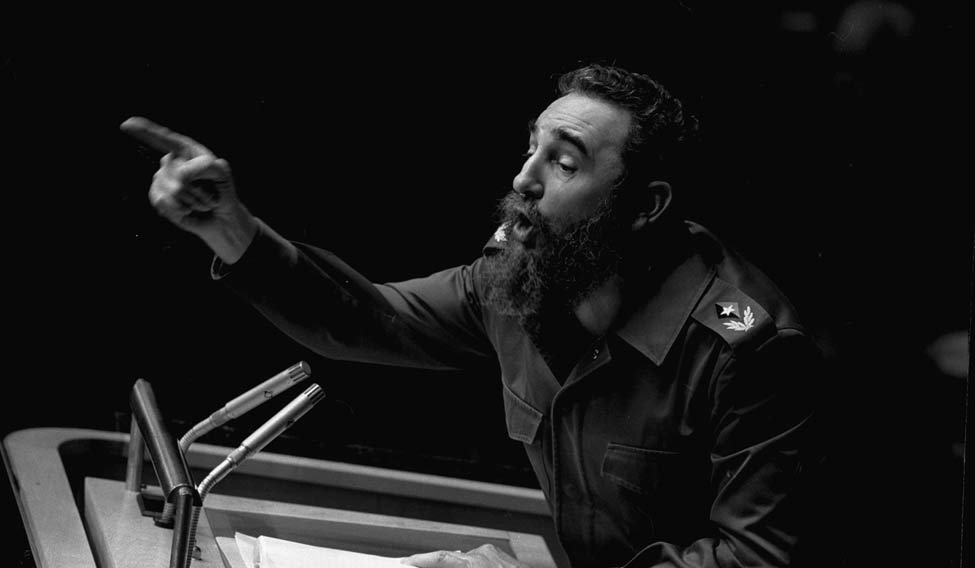Cuban revolutionary legend Fidel Castro passed away on November 25, aged 90. Raul Castro, brother and current president of Cuba, announced on national television about his death due to ill health from intestinal damage that plagued him for nearly a decade.
Reactions around the world vary: while most Cubans mourn his death, those who fled the country during his peak and settled in Little Havana in Miami were out celebrating.
Castro led the revolution against then-president Fulgencio Batista in 1953 and took over his role in 1959. He was the country's leader for 49 years, during which he turned Cuba into a communist country with a key role in the Cold War between the United States and the Soviet Union.
He was targeted by the CIA several times, and became a sworn enemy of the US, who is responsible for a crippling embargo on Cuba.
An icon of revolution for some and a symbol of evil for others, he nevertheless was known for his iron-fist policies as well as eloquent, hard-hitting speeches.
"Condemn me, it does not matter. History will absolve me."
Said during his trial in October, 1953. He had been put on trial, along with his brother Raul, for a failed raid on the Moncada Barracks in Cuba. The raid was meant to be a statement against then-president Fulgencio Batista's government and also loot weapons necessary for further armed conflict. This was one of the first armed movements that triggered the Cuban revolution. He was sentenced to 15 years, but in 1955 the government had to release him and other political figures owing to international pressure.
"I am not interested in power nor do I envisage assuming it at any time. All that I will do is to make sure that the sacrifices of so many compatriots should not be in vain, whatever the future may hold in store for me."
Said in one of his speeches when the revolution triumphed in 1959. Castro had already gained loyal followers by the numbers when he was arrested. The tense revolution to oust Batista had begun. Rebel groups associated with Castro tried to assassinate Batista, while the president sent his army to hunt for Castro. Guerrilla attacks by the rebels on the army rendered them weak. Finally, when Batista fled, most people in Cuba celebrated Castro's victory.
"With what moral right can the rulers of a nation speak of human rights when within it the millionaire and the beggar coexist, the Indian in exterminated, the black man is discriminated against, women are prostituted and large masses of Chicano, Puerto Ricans and Latin Americans are scorned, exploited and humiliated?"
Castro in an iconic speech at the World Communist Youth Conference in Havana, July 1978, referring to the United States.
"We will take the steps we have to take to keep our factories running, to keep our workers employed, to keep going forward in these difficult conditions, and ... find the formulas to save the country, save the revolution and save socialism."
Said during a meeting with the Communist Party in 1991. At this time, the Soviet economy was on a sharp decline, and so were the relations between Soviet Union and Cuba. Gorbachev and Castro clashed on idealogical differences related to Nicaragua, Angola, economics and disarmament.
“For such a small country as Cuba to have such a gigantic country as the United States live so obsessed with this small island, a country that no longer considers itself an adversary of the USSR or adversary of China and considers itself an adversary of Cuba—it is an honour for us.”
Said in an interview with NBC reporter Maria Shiver in 1988. The interview touched upon the accusations of human rights in Cuba, the Panama canal, as well as the drug and smuggling charges against him.
"I promise that I will be with you, if you so wish, for as long as I feel that I can be useful — and if it is not decided by nature before — not a minute less and not a second more ... Now I understand that it was not my destiny to rest at the end of my life."
Said during a speech in 2003 right after being re-elected by Cuban National Assembly as the president for a sixth term. He was 76 at that time, and became one of the world's longest ruling leaders.
"I want to remind (U.S. President Barack Obama) of a basic ethical principal related to Cuba: Any injustice, any crime in whatever time has no excuse to go on. The cruel blockade (embargo) against the Cuban people costs lives, costs suffering."
He wrote in a column in Cuba's state-run media in 2009. He wrote this in response to the fifth Summit of the Americas that took place in Trinidad and Tobago, where US president Obama was urged by other American countries into lifting the embargo on Cuba.
"I'll be 90 years old soon. Soon I'll be like all the others. The time will come for all of us, but the ideas of the Cuban Communists will remain as proof that on this planet, if one works with fervour and dignity, they can produce the material and cultural goods that human beings need and that need to be fought for without ever giving up."
Said in one of his latest speeches to the communist party congress in April this year. Rarely appearing to face the public since his illness a decade back, this was said to be one of his recent “extensive public appearance” in a while. Towards the end of his life, he passed on leadership posts to his brother, Raul, in 2008 and took up writing commentaries in the media and rarely interacting with world leaders.





